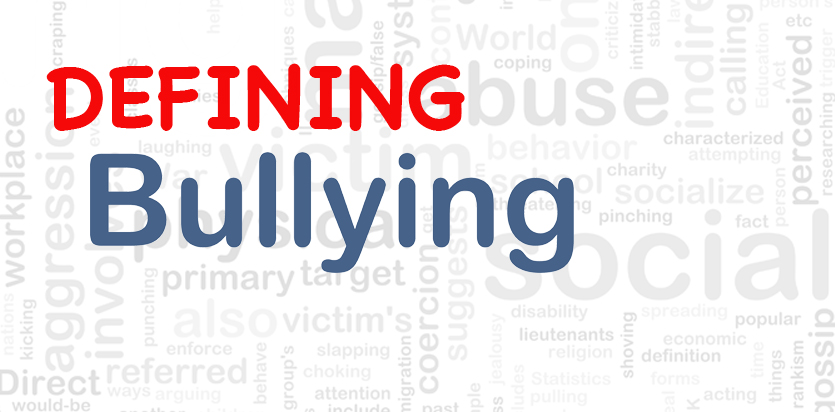At Home
Sticks and Stones: Defining a Bully
The theme for Bullying Awareness Week, November 16 to 22, 2014 is Stand Up! (to bullying), emphasizing the need for Canadians to speak out against all forms of bullying. Defining bullying is the first step in recognizing and naming the problem.
Bullying is typically a form of repeated, persistent, and aggressive behaviour directed at an individual or individuals that is intended to cause fear and distress or harm to another person’s body, feelings, self-esteem, or reputation.
“Bullying occurs in a context where there is a real or perceived power imbalance. Bullying is a form of abuse at the hands of peers that can take different forms at different ages,” said Corina Morrison, co-founder & executive director, London Anti-Bullying Coalition.
Definitions of four forms of bullying can be found on the LABC website.
Verbal bullying, the old rhyme sticks and stones will break my bones, but words will never hurt me no longer holds true in today’s diverse society. If verbal bullying is allowed or condoned, it becomes normalized and the target dehumanized.
Physical bullying can include unwanted touching in the form of slapping, hitting, choking, punching, kicking, twisting of limbs, or spitting. The results of physical bullying will often leave visible signs that can be detected by the parent.
Relational bullying is often difficult to detect as this takes place in the form of isolation, shunning and exclusion and is used to alienate and reject a peer or intentionally ruin friendships through the use of rumours.
Cyberbullying is the use of technology to verbally, socially, or psychologically attack someone. The relationship between parents and children, and the power parents have to effect change is paramount with constantly changing technology.
Bullying is associated with a range of physical and mental health problems, as well as suicide, educational problems, antisocial problems, and relationship problems.
“What children need to learn growing up is that every person is unique and they need to understand and accept differences in people, both physical and emotional. This education needs to happen in our homes our communities and not just at school,” said Morrison.
It is essential to identify children at risk for bullying and/or victimization and to provide support for their development in order to prevent the negative consequences associated with this type of disrespectful peer relationship.
“Bullying and cyberbullying are complex issues that require all of us to do our part. Our Government is taking strong action to protect our children and youth. We have introduced legislation that would make it a criminal offence to distribute intimate images without the consent of the person depicted,” said The Honourable Steven Blaney, Canada’s Minister of Public Safety and Emergency Preparedness.
The London Anti-Bullying Coalition is an independent non-profit, educational organization that strives to foster a culture of fairness, respect and equality for every individual; thus eliminating the problem of bullying. LABC is committed to increasing the awareness of bullying in society and to prevention through outreach, advocacy, and continuing education to enhance the capacity of individuals and community to effectively deal with matters of, and related to bullying.
Please visit www.londonabc.ca for more information and resource tools.
Get More! Receive six issues of Canadian Military Family Magazine in your mail box for only $17.95! Click here to subscribe NOW.










